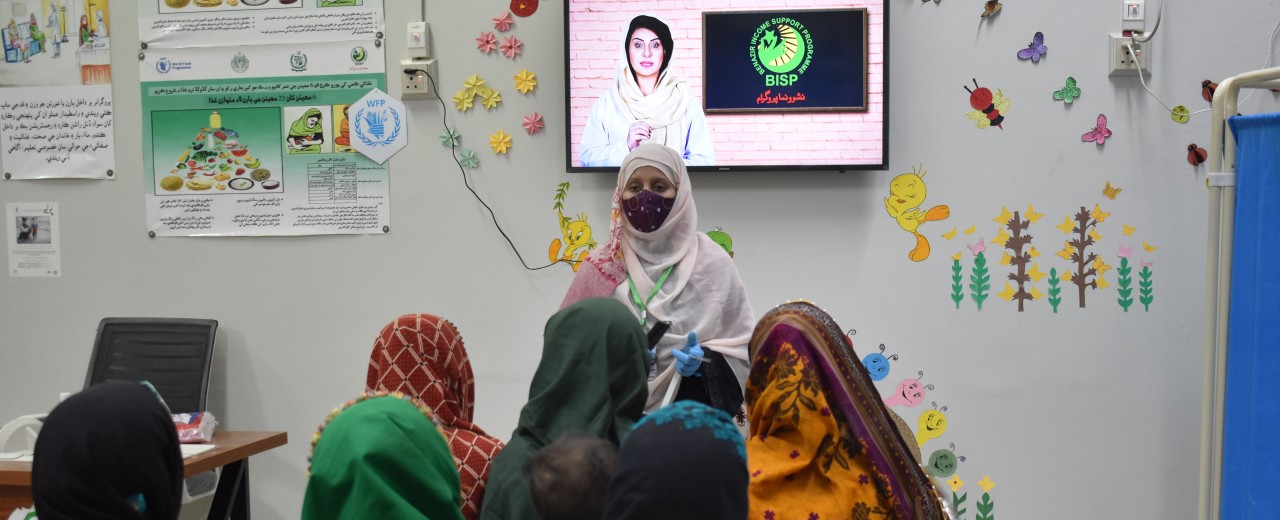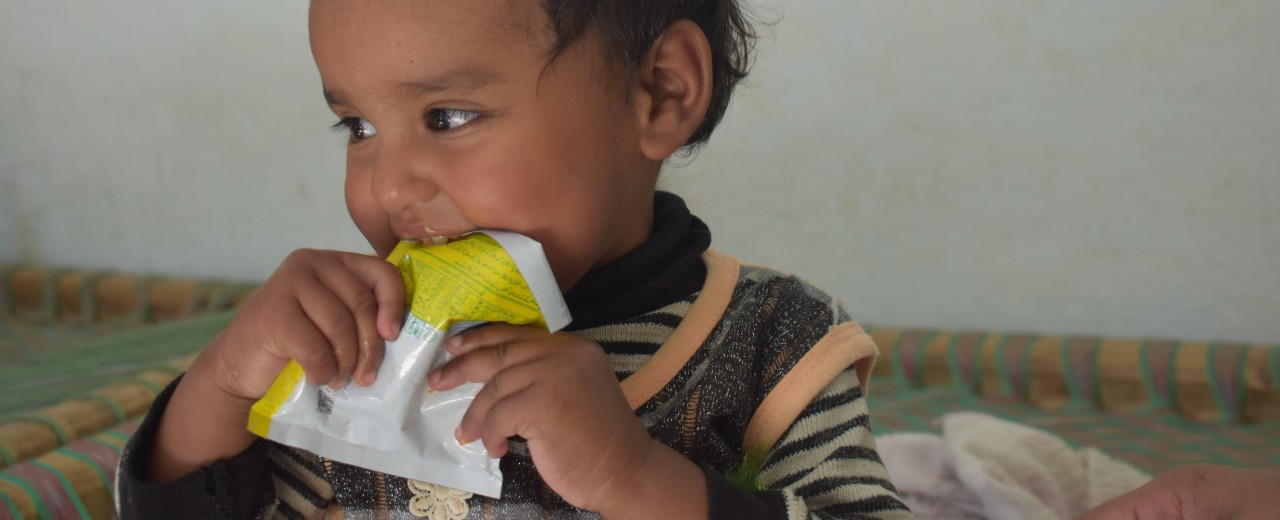
As of: 03/2024
Pakistan has achieved success in alleviating poverty over the past few decades. However in 2022, the devastating floods that inundated 15% of the country’s total land area have strongly undermined these efforts. Livelihoods have been destroyed. To help the people affected by the floods, the Pakistani state-run Benazir Income Support Programme (BISP) grants financial aid to impoverished families. KfW is providing funds for this programme on behalf of the German Federal Government. It is anticipated that women and their children and young girls will especially benefit from this. The objective is also to enable the BISP to better mitigate the impacts of climate change.
Pakistan has witnessed a significant reduction in poverty levels over the past 20 years, from more than 50% in 2006 to close to 24% in 2018. Then came the catastrophic floods of 2022, destroying the progress. In 2024, the national poverty rate was 40.5%. The state-run Benazir Income Support Programme, which provides impoverished households with financial support, has recorded approximately 35 million addresses in its database. The World Bank estimates that the consequences of the flood will put another 10 to 15 million people in poverty. Pakistan is one of the ten countries in the world with the highest prevalence of malnourished children. Chronic malnutrition is widespread. Pakistan is also one of the countries most affected by the consequences of climate change worldwide.
The catastrophic flooding was triggered by unusually heavy rainfall and the melting of glaciers. Precipitation levels were almost three times the average. More than 15% of the country was submerged, more than 1,700 people died and millions of hectares of agricultural land were flooded. This resulted in the devastation of large parts of the harvest and the destruction of houses and roads. Approximately 33 million people have been affected by the flooding. The disaster has demonstrated the extent to which Pakistan is already vulnerable to the impacts of climate change. The country is not prepared for such events as it lacks early warning mechanisms and crisis prevention measures.

The Benazir Income Support Programme increases the existing payments made to mothers and their children from PKR 2,000 to 3,000 (approximately 10 euros) for mothers, for example. In addition, new payments are being set up for young girls in selected villages affected by the flood, which will be made to the girls' mothers. By providing targeted support for mothers and young girls, the objective is to break the cycle of inherited malnutrition and poverty, so that malnourished and undernourished mothers give birth to malnourished children.
The disbursements are subject to the condition that the beneficiaries receive preventative health care and advice on nutrition and health. The aim is for pregnant women to be able to meet their specific nutritional needs. The young girls are given supplements such as folic acid and iron. These measures are designed to prevent chronic malnutrition. Educational campaigns that provide information about family planning are also being implemented for mothers and girls. Pregnant women attend medical check-ups.
With the aim of drafting a long-term social protection programme, a feasibility study is being financed and is nearing completion. Its objective is to identify the strategies and mechanisms that are required to protect people against the consequences of climate crises and to slow climate change. The study will analyse the financing requirements of the Benazir Income Support Programme in order to implement adaptive social protection in the long term.
KfW is providing EUR 27 million to support this project on behalf of the German Federal Ministry for Economic Cooperation and Development (BMZ).

The project has reached more than a million people, including over 395,000 pregnant women and more than 675,000 children. The financial support from the Benazir Income Support Programme means they can improve their health and nutrition. The project helps families cope with the consequences of the devastating floods. It therefore contributes to the adaptation to climate change.
The project contributes to the achievement of these following United Nations Sustainable Development Goals:
KfW Group
KfW Development Bank
Country sector Europe/Asia
Health and social protection
Share page
To share the content of this page with your network, click on one of the icons below.
Note on data protection: When you share content, your personal data is transferred to the selected network.
Data protection
Alternatively, you can also copy the short link: https://www.kfw-entwicklungsbank.de/s/enzB1BXZ
Copy link Link copied